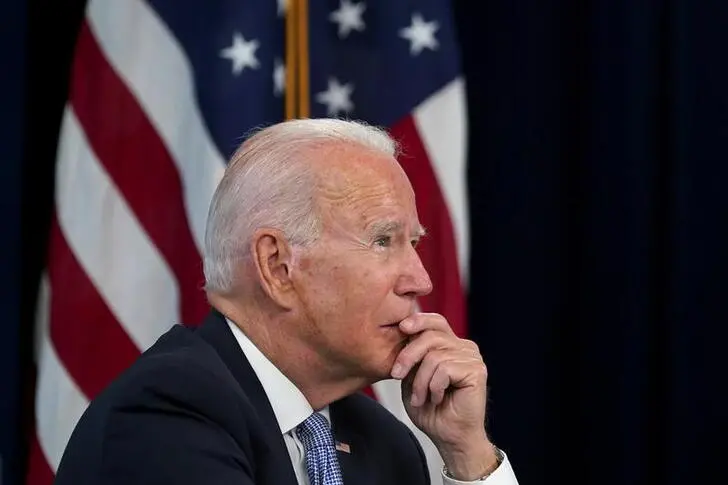PHOTO
The air strikes ordered by US President Joe Biden on Iran-backed militias inside Syria and Iraq on Sunday have stirred a great deal of controversy.
Iraqi Prime Minister Mustafa Al-Kadhimi denounced the attacks, describing them as a violation of Iraq’s sovereignty. The US defended them as justified, alleging that the targeted facilities were storage units used by militias such as Kata’ib Hezbollah and Kata’ib Sayyid Al-Shuhada to launch drone attacks against American soldiers and military bases inside Iraq and Syria.
America’s national interest in Iraq necessitates a serious strategic review of its military actions in order to pre-empt any potential serious crisis in its relationship with Baghdad. So far, Biden has not assigned any strategic priority to Iraq in terms of addressing its security needs and bolstering its national unity.
Biden is facing opposition in Congress to his decision to issue a second military offensive against targets inside Iraq in the last few months. The first occurred on Feb. 26. Democratic Sen. Chris Murphy on Sunday warned the Biden administration that it was creating “a pattern of hostilities” in its relations with Iraq. Other members of the Senate are claiming that Biden has violated the War Powers Act, which obligates the president to seek permission from Congress before sanctioning overseas military missions. The typical answer provided by every administration since the enactment of that legislation in 1973 is that the military threat was too immediate to allow Congress to be notified of the planned military action and too dangerous to warrant an open public discussion.
While Biden may be able to bypass congressional critics of his military policy in Iraq, he is underestimating the degree of protest by the Baghdad government and the Iraqi people as a result of these attacks. Iraq complains that these were surprise missions and even the military establishment in Baghdad was not told about them until after they had taken place. Meanwhile, there is the charge that the US has excluded the Iraqis from its military planning regarding their own country.
In addition, Baghdad is resentful of America’s selective policy, whereby it neglects the aggressive Turkish military forays inside the Kurdish areas in northern Iraq, but does not hesitate to hit pro-Iranian forces in any location inside the country. There are also the many bad impressions made by the US over the years that are still recalled by many Iraqis, such as going to war against it twice, disarming Iraq and dissolving its armed forces, the hunt for weapons of mass destruction, and not acting quickly enough to thwart Daesh’s advance across the country.
As Biden himself has declared his support for a strategic dialogue with Iraq, he should be mindful of the following important strategic steps. There has to be an accurate acknowledgment of how many US military bases there are in Iraq. The Iraqi people think that Washington has more bases inside their country than what has been officially announced. Second, military operations such as Sunday’s must be part of the discussion and there has to be a pledge by the US to inform the government of Iraq before their implementation.
A third point concerns helping Al-Kadhimi execute his duties as commander in chief of the Iraqi armed forces. Information sharing and constant consultation between the Iraqi and American military and intelligence apparatuses should be confirmed. There should also be a boosting of Iraq’s effort to improve its security through the definitions of a number of positive outcomes, such as limiting Iran’s influence in Iraq, better patrolling of its long borders with Syria and Iran, and cooperating with Kurdish forces to protect northern Iraq.
Biden should outline these crucial strategic steps in reference to Iraq. The Iraqis still appreciate America’s help in defeating Daesh. The informal American-Iraqi security coalition should be the genesis of preventing any resurgence by Daesh or any other extremist group. There is still time for Biden to speak candidly to the people of America and Iraq about how the two countries can cooperate to avoid any strategic risk to their security relationship.
- Maria Maalouf is a Lebanese journalist, broadcaster, publisher, and writer. She holds an MA in Political Sociology from the University of Lyon. Twitter: @bilarakib
Copyright: Arab News © 2021 All rights reserved. Provided by SyndiGate Media Inc. (Syndigate.info).





















